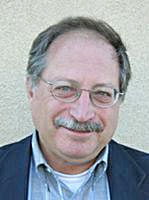Recent News
CHTM Joins NSF's NQVL Pilot Projects
August 9, 2024
OSE PHD, Dr. Xuefeng Li - Wins The Outstanding Interdisciplinary Graduate Programs Award
May 10, 2024
Dr. Ali Rastegari - 2024 OSE Best Dissertation Award Winner
May 10, 2024
2024 OSE Spring and Summer Graduates
May 10, 2024
News Archives
Smart Lighting Hospital Room at UNM HSC is ready for sleep studies based on calibrated lighting
March 22, 2016 - Excerpted from the Albuquerque Journal

A room at UNM Hospital in Albuquerque is set to become the site of studies that could have implications for a wide range of sleep disorders including those that affect the elderly, people with Alzheimer’s or Parkinson’s disease, post-operative patients and plain old night-owls, said Lee Brown, MD, professor of internal medicine and director of the UNM Hospitals Sleep Disorders Center.
UNM Health Sciences Center faculty and a research group with the UNM Department of Electrical and Computer Engineering have worked together to custom design and equip the room with a “smart lighting” system that can act like natural daylight, changing in its quality and intensity throughout the day.
Researchers at the University of New Mexico (UNM), Thomas Jefferson University in Philadelphia, Pa., and the Smart Lighting Research Center (ERC) at the Rensselaer Polytechnic Institute (RPI) in Troy, NY, are collaborating on the multi-year project. (The Smart Lighting ERC has since been rebranded as Lighting Enabled Systems and Applications [LESA].)
The concept of light as therapy for sleep disorders isn’t new, but most studies have been conducted exposing test subjects to a light encased in some form of box.
“They have people sitting in front of these things in a very artificial environment. This is a very much more natural environment,” said Professor Steve Brueck, UNM Distinguished Professor Emeritus of Electrical and Computer Engineering, who is the UNM lead for the Lighting Enabled Systems and Applications (LESA) project. To his knowledge, Brueck said, there have been no scientific studies using a room with a lighting system like the one at UNM Hospital.
“There isn’t one of these rooms in a clinical setting anywhere,” Brown said, “This is unique.”
The researchers are seeking $1.7 million in grant funding from the National Science Foundation which will enable them to do a pilot study with students – young people typically go to bed late and struggle to rise early – to see how exposure to the carefully calibrated light in the room can reset their biological clock.


